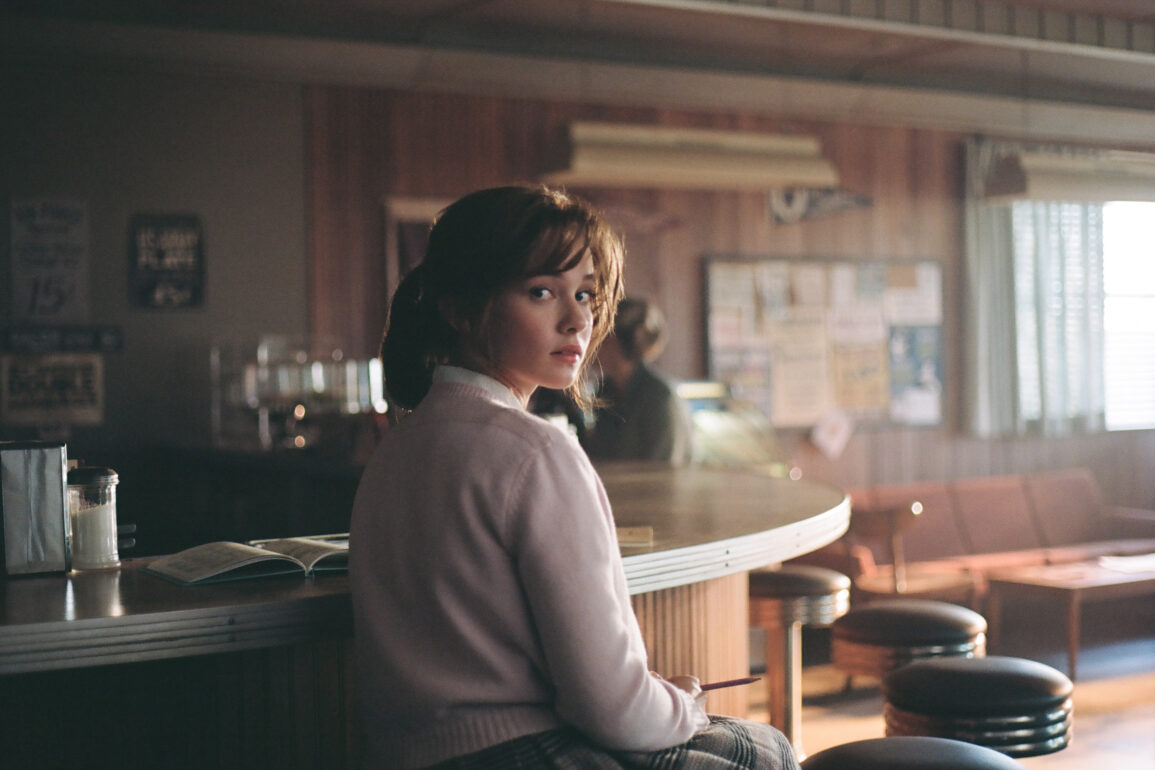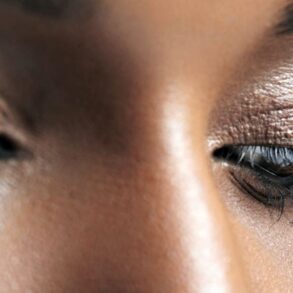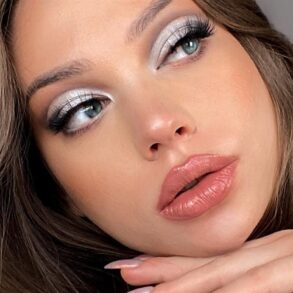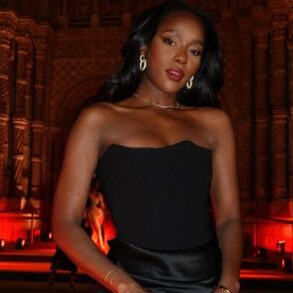Before Priscilla Presley became Priscilla Presley—the Queen of Graceland glamor icon known for her skyhigh beehive, sophisticated shift dresses, and dramatic cat eye—she was Priscilla Beaulieu, a fresh-faced teen sporting a simple ponytail.
Sofia Coppola’s Priscilla, out Nov. 3, traces Priscilla Presley’s transformation from ingénue into a figure who became synonymous with style over the course of her relationship with Elvis Presley. Priscilla’s journey from schoolgirl to wife to mother—all by the age of 23—is mirrored by the changes in her appearance.
Under Elvis’ influence, she sheds her innocence; her makeup gets bolder and her beehive gets bigger. But by the film’s end, she finds her independence—as well as a style that’s all her own.
In the film, we meet Priscilla (played by Cailee Spaeny) as a teenager in 1959 West Germany, her baby-face bare as she sips from a soda at a diner. After she meets Elvis (played in Priscilla by Jacob Elordi) and he begins courting her, her life rapidly changes. As their relationship progresses, and she moves to Graceland, Elvis exerts his control over Priscilla in part by making her change her look at his request, suggesting, for example, that she dye her brown hair black.
“He decided everything about her, everything about her look,” says Cliona Furley, who led Priscilla’s hair department.
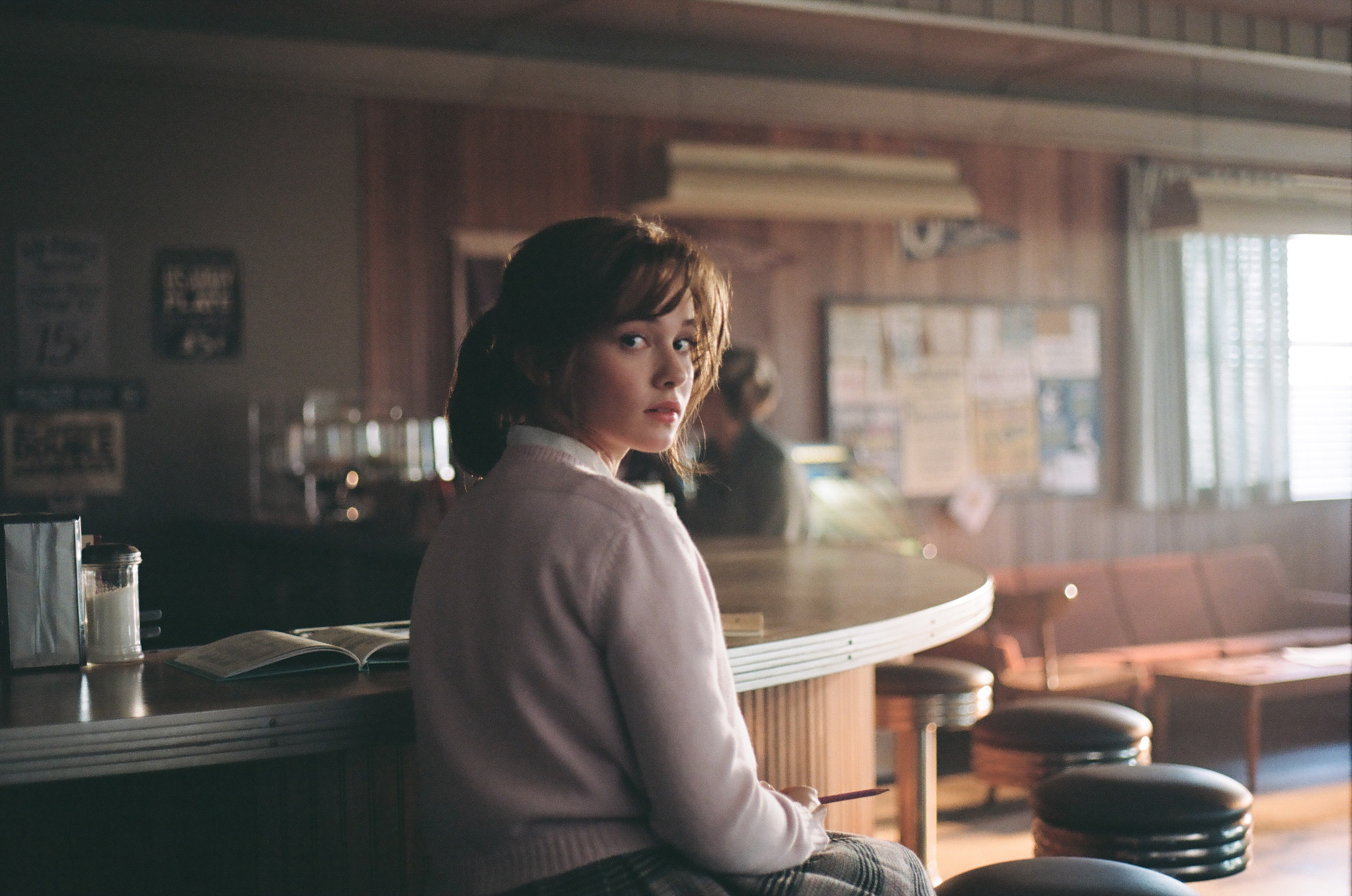
Furley’s choices for Priscilla’s hair emphasized how she was still very young: “I put a bang on that wig because I wanted her to still be a young girl who’s in the beginning of her glam stage.” After all, Priscilla is still in school when she first moves to Graceland. As Priscilla is throttled toward womanhood, there are signals that she’s still just a girl who has been swept up in a whirlwind romance with an American hero who calls all the shots.
“He thought she looked plain without makeup,” says Jo Ann MacNeil, who oversaw Priscilla’s makeup department. “She never presented herself to him without makeup on. If she was in a little bit of makeup when she came down and he saw her and thought it wasn’t enough, he would send her back upstairs to put more on.” The film shows Priscilla going to bed picture perfect before waking up early to apply a full face, so Elvis never sees her in her natural state. In her research, MacNeil learned that Elvis never wanted to see her in the process of getting ready. “When she woke up, she had to come down, fully done, fully dressed, fully made up hair, done everything,” she says.
But Priscilla also highlights how she carved out her own distinctive style as rock ‘n roll royalty in the 1960s. Priscilla Presley is a style icon within her own right; her appearance while with Elvis was not divorced from all agency. The cat eye has stood the test of time. “It’s been worn by some of the most iconic people of the century,” says MacNeil, referencing Audrey Hepburn, Sophia Loren, Brigitte Bardot, and Amy Winehouse. Despite limitations enforced on her by Elvis, Priscilla still wielded her look as a tool—even a weapon—and made it her own.
Read More: The True Story Behind Priscilla
She was also surrounded by the Memphis Mafia and their siren sidekicks, and feeling competitive with stars like Ann-Margret and Nancy Sinatra, older and more experienced women linked to Elvis in the tabloids. Of course she would have wanted to fit in.
“She’s this little girl compared to them,” says Furley. “She was trying to look more grown up for him.”
In this part of the film, she embodies mod glam: she wears shift dresses, has her hair done in her signature bouffant style, and sports flawlessly flicked eyeliner. Even while giving birth to her and Elvis’s daughter, Lisa Marie, in 1968, she insists on wearing lashes—rushing to the bathroom to apply them instead of rushing to the delivery room. And when she exits the hospital, the makeup is even heavier. The eye makeup Priscilla used for her signature cat eye is no longer available, so MacNeil relied on the Tom Ford Eye Defining Pen Liquid Eyeliner to capture it for the film in 2023.
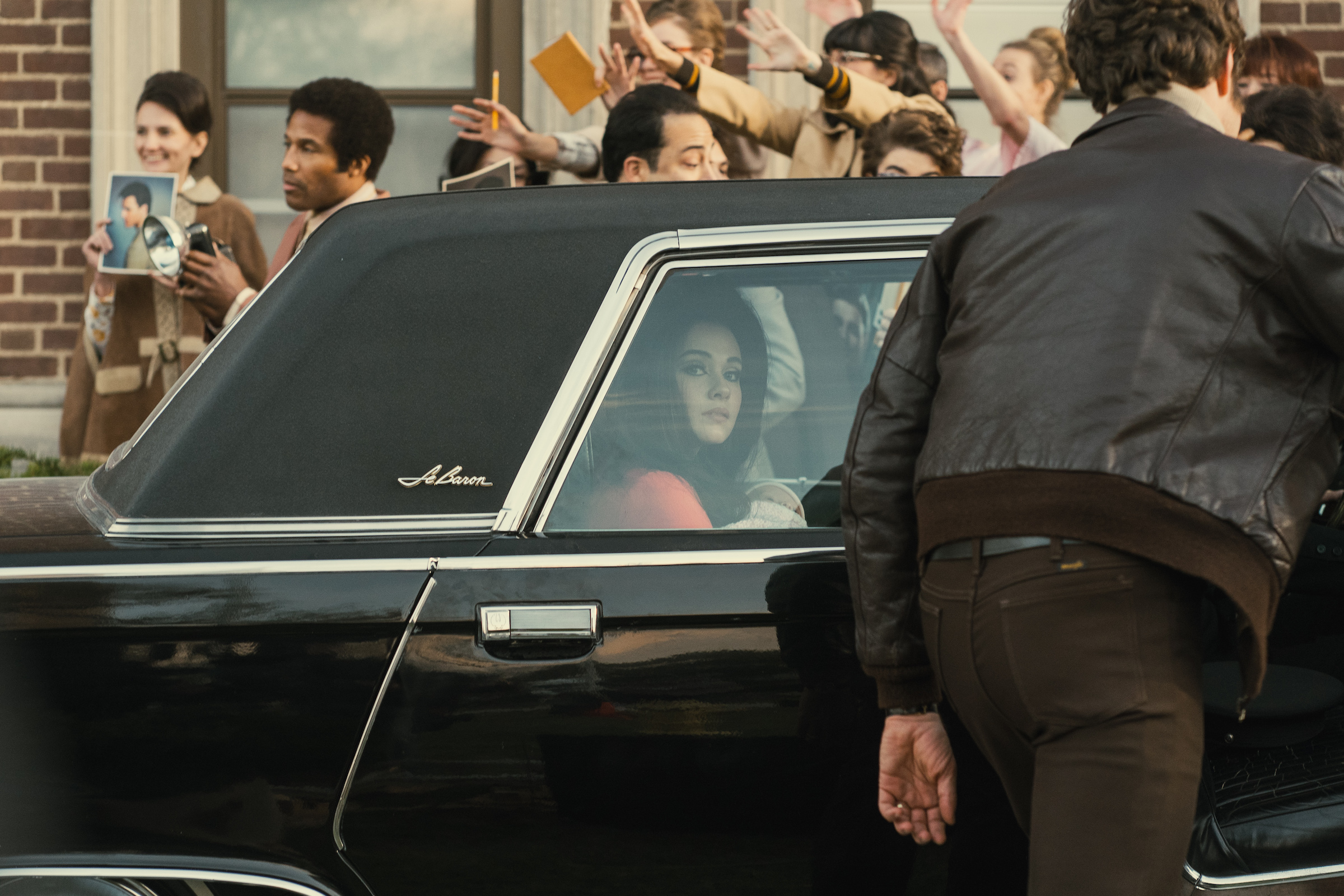



Priscilla also wants to defy her parents, who have qualms about her relationship with such an older man. When Priscilla returns home to Germany after one trip to Graceland—and Las Vegas—she gets off the plane with smudged makeup and disheveled hair as her parents look on in horror. “She’s being defiant through her hair there,” Furley says. Though Furley and MacNeil were still working within Spaeny’s natural colors, her hair is bigger than her parents have ever seen, and she’s wearing more makeup than usual. Priscilla has been introduced to the life of stardom, and she likes it and the attention it brings—until she doesn’t.
She gets restless. Sick of Elvis calling the shots and tired of reading reports of his latest rendezvous with various starlets, she starts to push back. Priscilla follows her as she moves to Los Angeles and grows her hair out. It’s long, loose, and lighter. Her porcelain skin is sun-kissed with color. Her lashes and eyebrows are gone in exchange for a more natural look. In MacNeil’s research, she learned that Priscilla considered her style while with Elvis as a facade of sorts. “She was at a time in her life where she was really trying to gain her independence back and stripping back the camouflage was a sign of that,” she says. By going back to her natural hair color, Priscilla actively resists Elvis’ power and finds her own. She also reclaims her time, no longer having to sit in the salon for hours in order to get her hair set, or sacrifice sleep to do her face before Elvis wakes up.
“I think we can all identify with her a little bit,” says Furley. “She might have lost a little part of herself along the way and then found it herself again.”
This post was originally published on this site be sure to check out more of their content.




